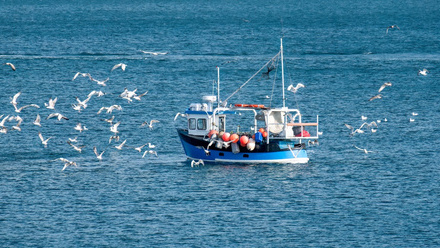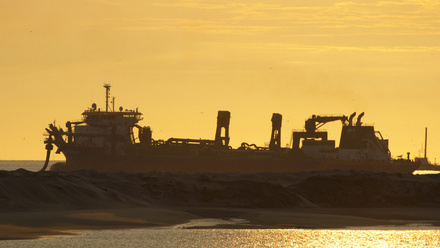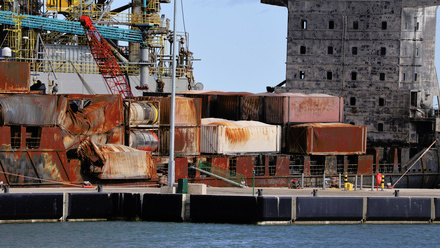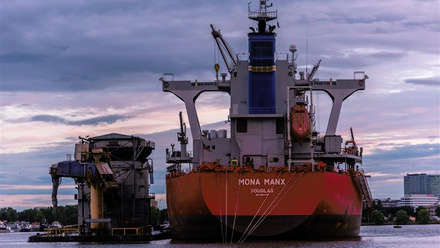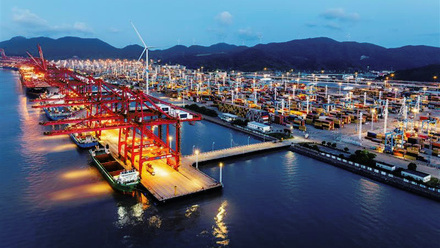IMarEST CEO: ‘No more blame game’
Chris Goldsworthy says ‘pointing the finger’ following accidents must stop if the global shortage of marine professionals in shipping is to be addressed.
There’s a very human need, when issues occur, to find someone to blame. It makes life easier to understand. Yet life is rarely simple, and most incidents are a confluence of different factors, many of which are out of our control.
That is particularly the case at sea, where a rush to finger pointing allows complex problems to go unaddressed. It also creates a toxic blame culture, where people don’t feel safe to speak up and may actively cover up potentially unsafe practices.
IMarEST CEO Chris Goldsworthy, who spent 16 years at sea with P&O Containers rising to the rank of Chief Engineer Officer before moving to shore-based roles, says that any blame culture is self-defeating for an industry that is crying out for new recruits.
“By 2026, there will be a global shortage of 89,500 marine professionals,according to figures from the IMO,” he stresses.
Making good that shortage means the industry needs to demonstrate not only the wonderful opportunities of a career in the maritime sector but also rewrite the perception that it’s a precarious choice of profession, where one mistake could see a seafarer lose a hard-earned certificate of competency, and with it their livelihood.
‘‘In some cases, this may be justified, however, not all,” says Goldsworthy. “People from certain geographic areas are probably the main income source for an extended family, and that’s a lot of pressure.”
And shipping itself is a pressurised job, with more demands and fewer people. “There’s a lot of time pressure, both actual and implied,” agrees Goldsworthy.
Influence from business operators
The real pressures come in the form of expectations from charterers and operators that cargoes will arrive on time, which is particularly critical for certain vessels.
However, the ‘gigification’ of seafaring jobs adds to the pressure, with seafarers employed on single-term contracts under the impression, rightly or wrongly, that if they don’t make the schedule happen, then they won’t be called back again.
“There’s an inordinate amount of pressure to get it right,” explains Goldsworthy. “[And] at [a] time when there’s a changing work scope, more inspections than ever, yet fewer staff numbers to make it happen.”
Under these conditions, it’s no surprise that seafarers – typically self-reliant problem solvers by nature – are reluctant to speak up or seek help when it goes wrong. This can create a mismatch of expectations with shore side staff, who might be surprised not to have had better foresight of potential issues. In turn, a toxic brew is created, where it’s easier to attribute blame without looking into the wider issues that contribute to incidents.
“To attract people into the sector, then the immediate reaction when something goes wrong cannot be to point the finger at the ship’s team,”says Goldsworthy. “The reality is that there are always many factors at work when there’s an incident, and we commonly refer to this as the Swiss cheese model, with many barriers as fail safes which all must be breached for an incident to occur, and not all of these are on the ships.”
Knee-jerk finger pointing – which is easier than ever in the age of social media – is unhelpful, because it takes time, trust and transparency to investigate. “Investigations take time and cannot be rushed,” says Goldsworthy. “But must then be timely reported on.”
Changing the culture
Encouraging a robust speak up culture is a huge shift, particularly given the size and diversity of this global workforce.
“Some companies are very good and very culture-led, but it’s hard to mandate a ‘no blame culture’ across different geographic areas, types of vessels and cultures,” acknowledges Goldsworthy. “There’s a lot of good work that a lot of people are doing, but it needs to become the normal rather than the exception.”
Moving away from a culture of blame, which afflicts many industries from healthcare to sport, will not only improve safety outcomes and the wellbeing of seafarers but also enhance the reputation of the industry as welcoming and supportive.
This is important to close the skills gap and create opportunities for young people in a career that can be hugely rewarding on both a professional and personal level.
“Before I went to sea for the first time, I was told the first three months will change you and it did,” says the IMarEST boss, who is passionate about the positives of maritime careers. “You learn so much, because you develop a can-do attitude, make a meaningful contribution and play an active part of a dynamic team. It really shows who you are.”
Goldsworthy concludes by pointing out that seafaring skills are very mappable to many other sectors: “Its problem solving at both a component and systemic level. It’s a unique environment, pulling together systems that are segregated ashore. A reasonably sized merchant vessel can have just 19 people running what is in effect a small town as it travels around the world. It’s a very comprehensive skillset.”
Tell us what you think about this article by joining the discussion on IMarEST Connect.
Main image: cargo ship Scot Leader leaves the port of Rotterdam. Credit: Shutterstock.
Inline image: Chris Goldsworthy before becoming IMarEST CEO. Credit: Chris Goldsworthy.

